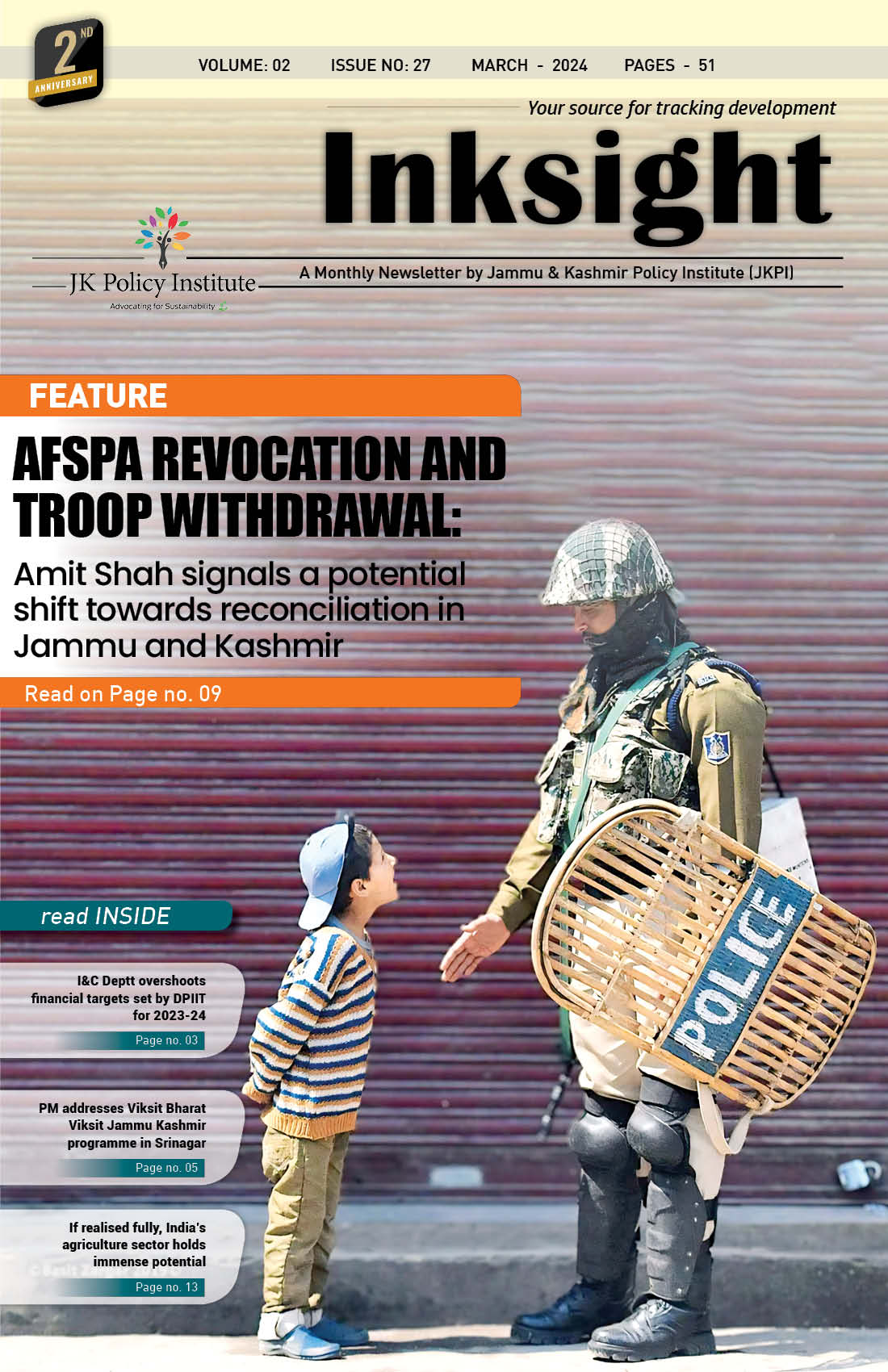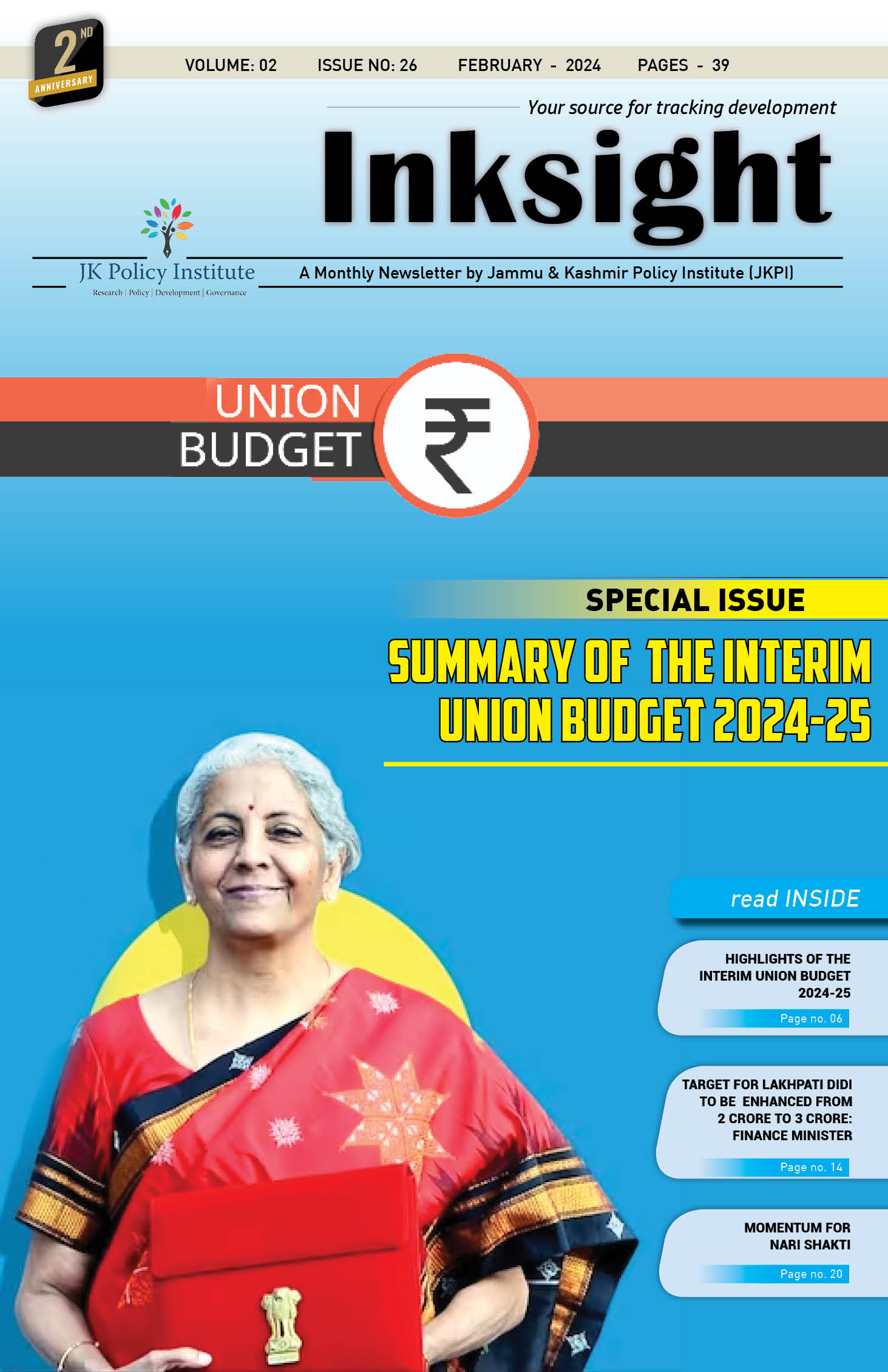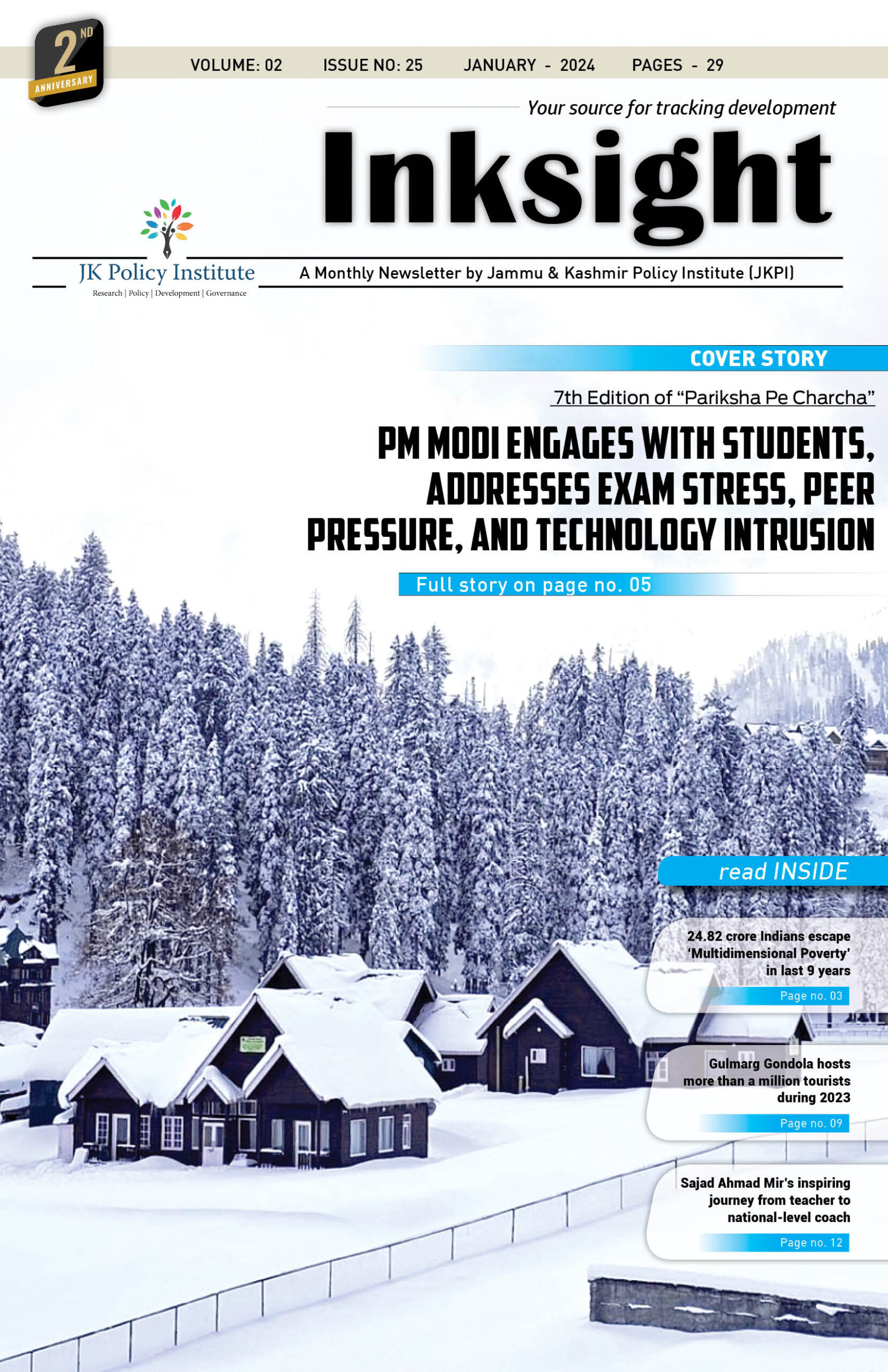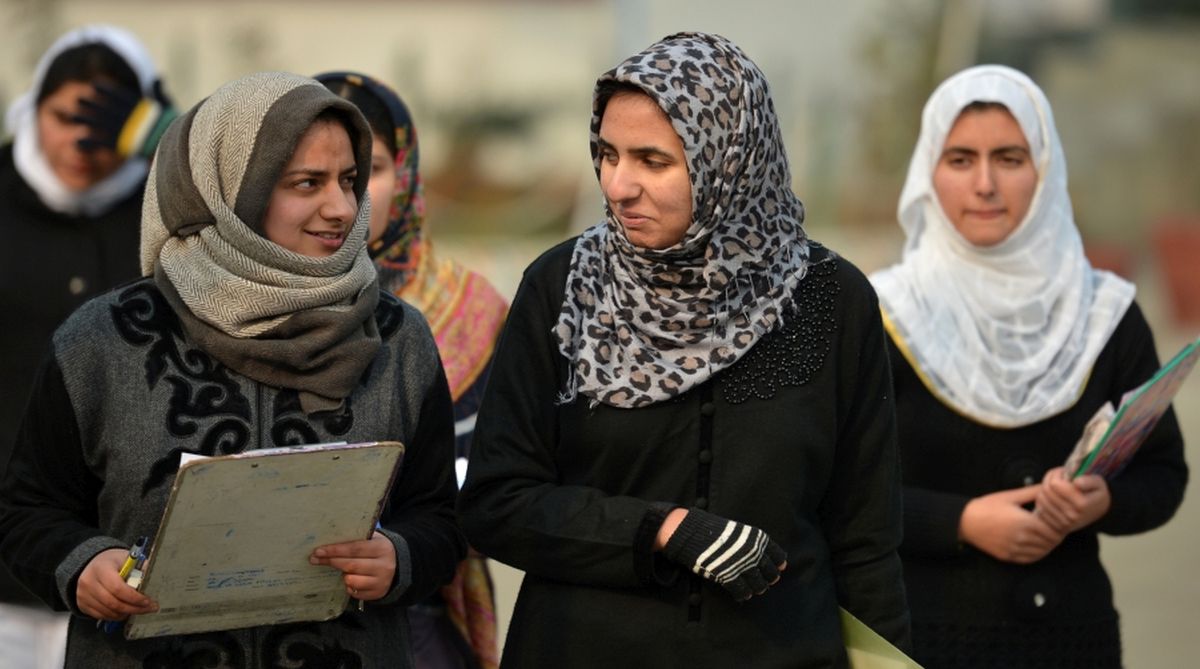Education is a pivotal human resource that broadens human faculties and prepares an individual for life. It is a dream for those who want to excel in life. To realize this dream, one needs to attend a college or a university. Admission into a university is a crucial milestone in one’s educational journey, marking the metamorphosis from a social and psychological being to higher emotional and cognitive abilities. Taking admission is the first formal process of transitioning from high school or a previous academic stage to higher education, setting the stage for personal and professional growth. The benefits of education are infinite provided it is a meaningful and transformational activity, extending beyond the classroom. Education is revered and taken seriously in Kashmir, like in any other progressive society. However, there is no denying the fact that the standard, quality, and value of education have eroded over time due to the commercialization of education, outdated curriculum, lack of teacher training and motivation, educational infrastructure, a lack of connection between knowledge and industry, and a bookish-centric approach. In this article, we will attempt to understand a new rising trend of ‘On Spot Admission’ in the educational sector, especially in higher education.
The gradual decline in admissions across several universities in the valley has raised legitimate questions about the existing education system, the types of courses offered, institutional perception, and the changing aspirations of the youth. The relevance of offered courses is essential in determining how the course is evolving and adapting to the ever-changing world. The lack of relevance of a course can be a possible reason for the decline in admissions. Furthermore, institutional perception does impact the reputation of the institution. The present scenario offers a lens to understand the gravity of the matter, with diminishing institutional perception due to the fact that other universities are faring better, gaining recognition and prestige. This could severely impact local institutions, which need to evolve and upgrade their academic standards to remain an attractive destination for students. If desired revamping does not happen on time, it could accentuate the negative perception among students and parents.
What is also imperative to focus on here is the availability rather than the condensation of jobs in the market. With severely constrained job opportunities, a great number of youth in J&K are turning towards self-employment and entrepreneurship. The uncertainty of job placements also deepens the disillusionment among students from pursuing higher education, which is why they are turning towards entrepreneurship. Spot admissions could undermine the fundamental goals of higher education by compromising merit and the quality of education. Prospective students who are ailing due to the absence of hostel facilities and expensive course fees will see their anxieties exacerbate further. It also raises concerns about these entities’ accountability. Universities that are unable to draw in students may have internal problems that require attention, hindering higher education in its ability to generate talented professionals and researchers, as well as in its ability to flourish, by a shortage of futuristic leaders, managers, and thinkers.
It is very important to underline the fact that UGC has mooted standard operating procedures to all central universities to fill up the vacant seats. UGC has instructed all central universities to avoid wasting seats. The Central University of Kashmir (CUK) has, for the second consecutive year, chosen the “spot admission” route to fill the vacant post-graduation (PG) seats in various departments. In 2022, CUK filled many vacant seats for PG courses via the spot admission route. Again, this year (2023) saw the repetition of this trend, in fact, numbers are surging high, indicating concern and throwing questions on the credibility of the university. Recently, since a huge number of seats remained vacant, CUK issued a notice which read, “The candidates, who have either appeared or not appeared in the CUET-2023, can register for the available seats.” The notice further read that admission may be given to the students in the absence of a Common University Entrance Test (CUET) score. This is startling to see how a university is failing to attract students even from its catchment area. Therefore, the spot admission notice throws numerous questions and challenges for the realization of objectives in higher education.
The pertinent question is what implies a spot admission and how does it function. Spot admission means anyone can come and get admission. In this context, for instance, the Central University of Kashmir notification says that the candidates who have appeared or not appeared in the entrance test can apply for spot admissions, which means it is free for all. This move obviously compromises merit, and quality, and breeds academic mediocrity. CUK has issued a notification for the second consecutive year for spot admissions, indicating that the varsity has no takers, particularly in the department of convergent journalism. The situation came to the limelight last year (2022) when the university invited spot admissions from candidates who had not even applied for admissions or entrance examinations. It has been argued that the lack of availability of hostels for students, is a major reason for the decline in admissions. Similarly, Kashmir University (KU), which was once a cradle for higher learning, is plagued with an unprecedented crisis as hundreds of seats remain vacant in various postgraduate (PG) departments across its campuses for admission in the academic session 2023-23. In light of this emergent scenario, the university has kept the admission process open for 5 months as the seats have remained vacant, deciding to keep the admission process for the 2023 session open and have called students for counselling to fill these vacant seats.
The eligible students not seeking admission to other departments of Kashmir University are inflating. In fact, the Directorate of Admissions and Competitive Examinations at KU on October 25 floated a call for ‘spot admissions’ to fill up vacant seats for various engineering programs in the Institute of Technology (IOT), Zakura Campus and North Campus Baramulla. Data suggests that vacant seats are almost 70% to 80% in branches, including Civil Engineering, Electrical Engineering, Mechanical Engineering, Electronics and Communication Engineering at the IOT, in addition to Computer Science Engineering at North Campus Baramulla. Further, it is dismal to say that it is for the first time in the University’s history that the admission strength has drastically come down, from around 30,000 applications to just 11,000 this year.
What is worrisome is the fact that the valley’s Premier University for post-graduation has generally been Kashmir University. It would not be unfair to say that its academic standards have come down like anything. It no longer holds back to its past legacy. However, the year 2023 is witnessing a significant decline in admissions, despite the fact that the university’s A+ grade recognition and NIRF ranking within the top 50 institutions are not attracting students. Official statistics reveal that earlier the university used to receive applications 30,000 to 35,000 for various courses. The number of applications has drastically reduced. In response to the ongoing admission crisis, the Directorate of Admission and Competitive Examination (DACE) at Kashmir University has issued a notification stating that the admission process for the 2023 session is now closed, but vacant seats in various programs necessitate additional counselling. This statement demands caution owing to the fact that officially this is the second time such a crisis has emerged.
What is surprising is the steep fall in admissions across colleges in the valley. In 2022, Government Degree College Ganderbal had 1700 admissions, which fell to around 700 in 2023. Similarly, the number in Beerwa College recorded a fall from 493 to 311. In Sogam (Kupwara), the college got 513 in 2023 as compared to 689 in 2022. The trend continues unabated in other colleges. Take, for instance, the case of Khansahab College in Budgam; its enrollment fell from 300 to 167. In Handwara College, the numbers had a steep downward spiral from 963 to 577. The job market has also undergone a dynamic shift. Now it is the skill development that attracts demands in the market. Students prefer online courses and studies, a norm that was forced upon them by the Covid-19 pandemic. What we are witnessing also is the institutions imparting training online. By availing of such online courses, students are actively seeking avenues that are not readily available through traditional educational channels.
Education is generally linked with the source of livelihood and a means of a job. This is also true about Kashmir. However, what we are seeing is an unprecedented rise in joblessness in the valley. The drying up of jobs in the public and private sectors has disillusioned a huge chunk of the population. As per the Centre for Monitoring Indian Economy (CMIE), by March 2023, J&K had 23.1% unemployment, which placed it at the 3rd spot in India. Data suggests that around 6,00,000 educated youth in the region remain unemployed, which exacerbates their social and economic distress. As per a survey by the Department of Employment in collaboration with district administrations, there were 663,511 unemployed youth in J&K as of May 31, 2022. It raises multi-dimensional questions on the state of educational affairs in the valley and seeks urgent intervention from multi-stakeholders.
Spot admission implications signify
Lower Academic Standards: The basic necessity for any university to start spot admission is indicative of the fact that students are not attracted to the university due to several causes such as lack of academic rigour, lack of good academic training and guidance to growing students. Those who seriously want to pursue academics will be discouraged. Institutions may admit students who are not adequately prepared for university or college-level work.
Affecting Meritocracy: Relative discrimination among students will spike. This will accentuate the binary of merit versus non-merit admission. Due to this, the academic standards and outcomes will suffer.
Deepening Dependency: The issues of dependency among students will increase through open entry, and this will enhance a lack of enterprise among students.
Corrupt Practices: Highly impregnated to favouritism, nepotism, and corrupt practices if transparency and fair practices are not strictly adhered to.
Positives of spot admission
However, saying all this does not mean that spot admission is brimmed with lacunas. It has its own set of advantages. For instance, it can save and avoid the wastage of time of those students who cannot otherwise prepare or appear in the examinations owing to multiple factors. The primary objective of spot admission entry in universities is to increase access to higher education by removing or lowering traditional admission barriers, such as strict academic requirements or standardized test scores. This approach aims to provide educational opportunities to a broader and more diverse range of students, including those who may have faced disadvantages or challenges in their academic journey. Ultimately, spot admission seeks to promote inclusivity and equal access to higher education, allowing individuals from various backgrounds to pursue their educational and career goals.
Spot admission thus can foster and enhance diversity and inclusivity on campus. It can save those seats which otherwise go to waste. Some of the advantages can be mentioned as follows:
Accessibility: Spot admission policies make education more accessible to a broader range of students, including those who may not have had the opportunity otherwise.
Diversity: Spot admission can lead to a more diverse student body, fostering a rich learning environment where students from various backgrounds can interact and learn from one another.
Reduced Discrimination: It helps reduce discrimination in the admissions process, as students are admitted regardless of standardized test scores or previous academic performance.
Opportunity for Improvement: It allows students who may have struggled in the past to have a chance at higher education and the opportunity to improve their academic skills.
Community Engagement: Educational institutions with Spot admission policies often play a significant role in their communities by offering educational opportunities to a wide range of individuals.
Noted educationalist, visionary, and retired headmaster from Anantnag’s Qazigund (Wanpora-Panzeth) Abdul Salam Dar has inspired a generation of young minds in the field of education. Abdul Salam Dar is a down-to-earth, honest, dedicated, and ideal teacher one can say mostly served in remote, inaccessible, and socially and economically marginalized areas. For him, education implies accessibility, affordability, and equity, transcending social and economic barriers. According to him, KU has unambiguously played an important role in the field of education. However, the recent rising trend of spot admission is indicative of the fact that academic standards have suffered, and the reasons must be examined and rectified. He called for the need to strike the balance between accessibility and maintaining academic standards while implementing spot admission policies. Thus, he emphasized that accessibility, diversity, and equal opportunity should be promoted but not at the cost of compromising quality and excellence in education.
Way forward
Even though UGC has given guidelines to the universities, reversing this riding trend of filling seats through on-spot admissions requires updating the curriculum, maintaining a balance between academics and extracurricular activities, improving the existing infrastructure, and addressing internal issues. As a policy intervention, an academic audit of programs needs to assess their viability and their contemporary relevance. There is a need to revamp the poor pedagogic engagement and unprofessional attitudes of professors.
Conclusion
Spot admission is fraught with so many challenges, but it does offer a window when it comes to inclusion and improvement in opportunity. The need is to take prompt intervention in terms of redeeming the quality of education and maintaining fairness and accountability. Also, efforts should be mobilized to promote higher education to enhance employability and contribute to the inclusive development of the region. Only through these measures can the universities in J&K regain their appeal and provide a brighter future for the youth of the region.
References
-
-
https://www.greaterkashmir.com/op-ed-2/why-are-universities-in-jk-losing-student-strength?fbclid=IwAR2_uAGqEksgfbrjW-vdCmvurDK0SmDrjJyIH-z9cy5rmw5KCJrccJkyqpI_aem_AXkEYCSYvNuGGYQJ1IBHo_IsA6XqAo6yIuycUduI7OPJGOFMKoyJCpiFd4KtOO2DWfk&mibextid=Zxz2cZhttps://lakecitytimes.com/2023/10/26/no-takers-for-kus-engineering-programmes-as-seats-remain-vacant/
-
-
https://kashmirlife.net/kashmir-colleges-empty-classrooms-vol-15-issue-32-332551/





Leave a Reply
You must belogged in to post a comment.